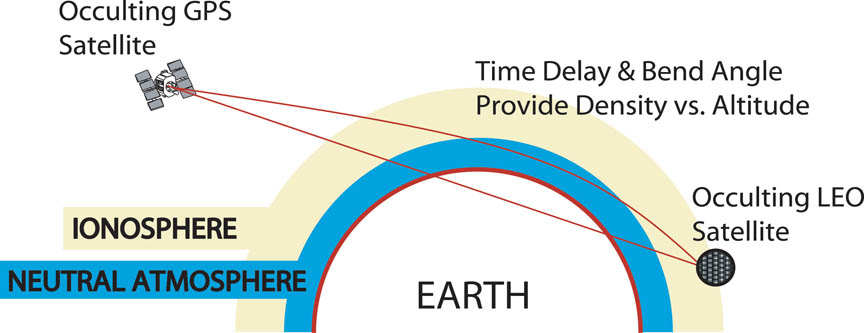
The House Armed Services Committee (HASC) is considering legislation that would fully authorize the White House’s funding request for GPS and possibly add provisions aimed at evaluating the new, troubled GPS ground system and pushing the Pentagon to look at a global backup for GPS.
The House Armed Services Committee (HASC) is considering legislation that would fully authorize the White House’s funding request for GPS and possibly add provisions aimed at evaluating the new, troubled GPS ground system and pushing the Pentagon to look at a global backup for GPS.
HASC Chairman Rep. Mac Thornberry, R-Texas, this week released his mark — that is his version — of the Fiscal Year 2016 (FY16) National Defense Authorization Bill (H.R. 1735). The bill would approve spending a total of $938.8 million on the GPS program with $180.9 million and $199.2 million going to GPS III development and procurement, respectively.
If adopted, Thornberry’s approach would green-light $66.1 million for GPS IIF satellites and $142.3 million for military GPS user equipment. The largest block of funding, $350.2 million, goes to development of the Next Generation Operational Control System (OCX) and the GPS Enterprise Integrator.
The proposal mirrors, dollar for dollar, the White House request for GPS. That does not, however, mean approval will be smooth. GPS is a small element within the Department of Defense (DoD) legislation’s many provisions, of which some are quite controversial. Thornberry, for example, is proposing to withhold 25 percent of the Pentagon’s budget until the White House provides information he wants about its decision to exchange five Guantanamo Bay detainees for then-captive American serviceman Sgt. Bowe Bergdahl. The Obama administration made the swap without notifying Congress.
GPS Provisions?
The chairman’s version of the bill does not include in its report two provisions accompanying the version forwarded by the HASC’s Strategic Forces Subcommittee. In its report the subcommittee directed the Under Secretary of Defense for Acquisition, Technology, and Logistics to brief the full committee, by October 1, on “the potential value and feasibility of establishing a temporary independent advisory team for GPS OCX."
The subcommittee also wants a briefing from the Pentagon on a backup system for position, navigation, and timing (PNT) information, including its requirements outside of the continental United States. In other words, a system that is not necessarily limited to what is now the most likely backup option — eLoran.
Does the fact that the report accompanying the chairman’s bill leaves out the GPS program mean the subcommittee provisions will be left on the cutting room floor? Not necessarily. Although Thornberry’s bill is the starting point, the staff pulls together the report, with all of its directive minutiae, after work on the bill is done.
“The report is nonlegislative language that explains what the committee wants to do and that’s not drafted until after the committee has approved something,” explained Stan Collender, national director of financial communications for Qorvis Communications and an expert on the federal budget. Moreover, a separate DoD appropriations bill must be passed separately that actually funds whatever Congress authorizes in H.R. 1735.
In this case it seems likely that the final report will pull from the subcommittee language, particularly for the less contentious elements. The report included with the chairman’s mark focused on issues such as command and control within Operation Inherent Resolve and the need for a mobile, land-based anti-ship missile system — and it was less than 50 pages long.
These reports generally are an order of magnitude longer — last year’s HASC report totaled nearly 600 pages — and at least touch on most DoD programs. The scope of effort still required suggests the staff is likely to incorporate much if not most of the language of the HASC subcommittees.
Restoring the IRT
As noted the subcommittee language would require an independent advisory team be established temporarily to take a hard look at the OCX ground system. Prime contractor Raytheon has been struggling to develop the system, which incorporates the very latest in information assurance measures to safeguard against hackers. The challenging project is behind by more than two years, the Government Accountability Office said in a report in March, and its cost has nearly doubled.
Acceptance of the Launch and Checkout System by the Air Force has now slipped from the first quarter of fiscal year 2016 to the second quarter, said a Global Positioning Systems Directorate spokesperson. The revised budget is still in flux, but should be finalized by May or June, the spokesman said.
Congress asking for a new review team is rather ironic given that it was the budget squeeze that forced Air Force Space Command to close a number of advisory groups just a year ago and downgrade the well-respected GPS Independent Review Team (IRT). The IRT, with just a third of its funding and staff remaining, is now under the umbrella of the Independent Strategic Advisory Group (ISAG).
Gotta Have a Backup
Finally, the Strategic Forces Subcommittee opened a potentially bothersome can of worms with its directive for the Pentagon to report back on its need for a backup to GPS. Lawmakers noted that the strictly domestic system now being considered “would not address all Department of Defense and warfighter requirements.”
The report language directs the Secretary of Defense to brief the committee by next January 15 on its “requirements for backup position, navigation, and timing capabilities, including the plan and estimated cost to address such requirements.”
Although the committee is thinking about the overall need for a backup it does want the briefing to include an assessment of the benefits of a U.S.-based ground system and “any current or planned funding for this activity.”
Interestingly, Thornberry’s markup of the bill underscores the importance of U.S. cooperation with allies and partners throughout its 500 pages of legislative measures, tables, and report language. If the committee is genuinely interested in a global backup for PNT, perhaps its examination of the issue will evolve into support for international cooperation between the U.S. and key allies such as Europe and Japan. This could force a rethinking of relationship-damaging mandates like the one requiring non-U.S. providers of PNT services to get authorization before their GNSS signals can be used officially in the United States.





